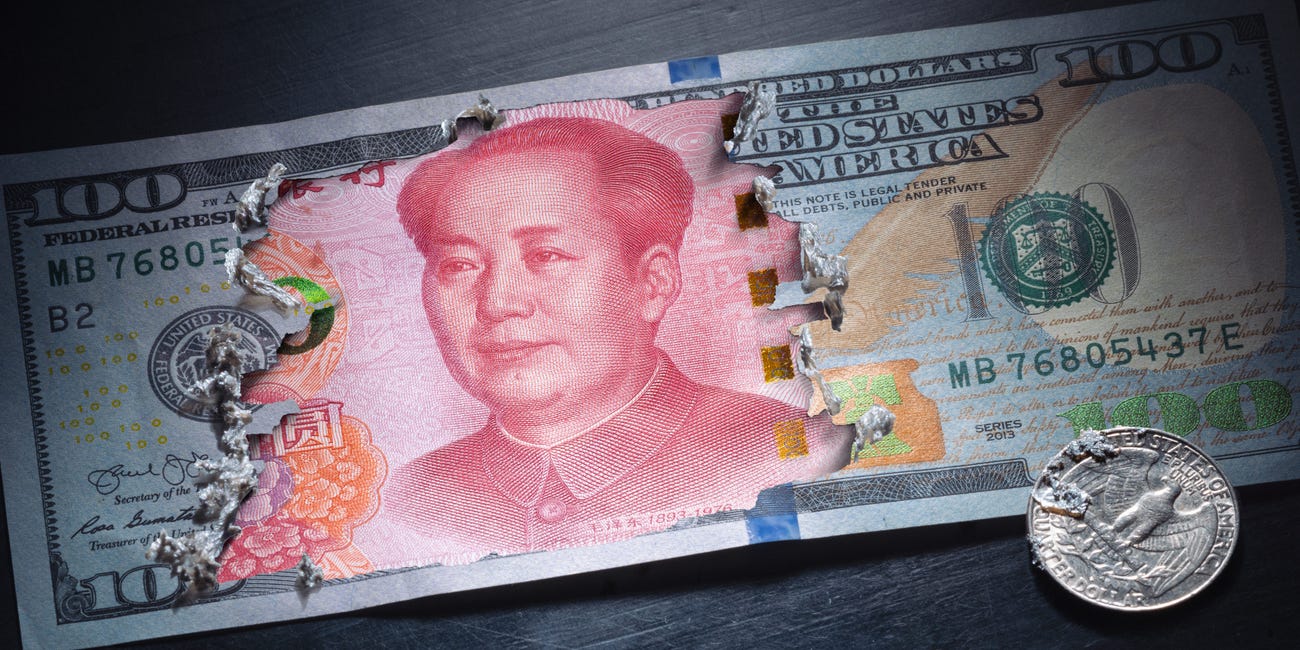Alwaght- Important wars in history have always made many changes to the political and economic arenas, and this time the Ukraine war has introduced such changes to the world geopolitical order due to its wide-ranging aspects, and the world is expected to move into a new era with a new chapter of the history written.
In addition to causing military and political groupings, the war in Ukraine has left its economic and financial effects, with new orders forming in these areas. In a connected move, the Association of Southeast Asian Nations (ASEAN) are mulling removing the US dollar, euro, yen, and British pound from their trade and using national currencies. An official meeting was held on March 21-22 in Indonesia with the presence of ministers of economy and finance and governors of central banks of ASEAN member countries with the aim of developing security and economic cooperation. Brunei, Cambodia, Indonesia, Laos, Malaysia, Myanmar, the Philippines, Singapore, Thailand, and Vietnam are members of this economic bloc and are trying to reduce dependence on currencies such as the US dollar. For some time now, use of national currencies in the trade among the member states was raised and the current negotiations are a sequel to that agenda.
ASEAN is seeking to develop a digital cross-border payment system among the member states to use their currencies in their trade. In November 2022 agreements were made among Indonesia, Malaysia, Singapore, the Philippines, and Thailand. President Joko Widodo of Indonesia said that dropping Western payment systems was necessary to shield trade against geopolitical tensions.
ASEAN members are among Asian economic powers and their currency policies can leave considerable impacts in global trade that work against Western interests. The Asian bloc’s decision to ditch dollar and euro from its trade comes as China and Russia over the past year have seriously followed this project. Over the weekend, China and Brazil signed an agreement to dump dollar for trade and use yuan, China’s official currency. Brazil is one of the world’s great economic powers and one of China’s great partners, and dropping the dollar from bilateral economic interactions and using the yuan can turn the tide in China’s favor.
China has also agreed with Saudi Arabia to put dollar aside from trade. China and Saudi Arabia trade is $100 billion annually, and the removal of the dollar will lead to a decrease in interactions with dollar in the world. Earlier, Bangladesh, Kazakhstan and Laos had also held talks with China to boost the use of the yuan. Also, India announced the internationalization of its national currency rupee and launched a bilateral payment mechanism with Saudi Arabia in its domestic currency.
Russia, which ceased its trade with the US and Europe after Ukraine war, is keenly seeking to ditch dollar and took the initial steps in trade with Iran and also reached agreements with China on de-dollarization, and if implemented, the agreements allow national currencies to rebel against the dollar as dominant global currency.
End to dollar dominance
Dumping the dollar will strengthen national currencies in the world trade and end the 80-year dollar dominance. The dollar hegemony rise dates back to Bretton Woods conference of 1944, when 44 countries of Allied front in the WWII agreed on a new global monetary system. Countries in the conference agreed to set value of their national currencies based on the US dollar, and since then, the world economy has been overshadowed by the American monetary policies.
Using the dollar as the world’s common currency had given Washington a special position in the world economy, and in the last eight decades, this country used the dollar as a political weapon to punish non-compliant countries in order to align them with its global policies. Cruel US sanctions have caused a lot of damage to economies of developing countries, and if the dollar is removed from global exchanges, its domination will automatically disappear, and Washington will no longer be able to punish other countries with the lever of sanctions as before.
Though being the world’s biggest debtor, the US can print dollar and meet its global commitments, without its economy taking damage. But others are deprived of this privilege and have to adjust to the White House monetary policies. Many countries have been hurt by the dollar dominance and are struggling to work out new financial initiatives to get rid of it forever and maintain their national currency value against other currencies.
In the past year, there have been many changes in the world economy leading to a decrease in dollar-based trade, something rendering the US extremely worried. According to the statistics, in February, the use of the US dollar in global transactions dropped by 1.07 percent and the dollar share dropped to 38.85 percent of the total global transactions made through the SWIFT network, indicating that the dollar decline is taking place at a gentle slope. Moreover, given the new decisions of ASEAN and the agreements of China and Russia with their allies, in the coming months, dollar value will observer sharper decline. Actually, Bretton Woods structure has already begun to tremble.
Pieces of evidence show that transactions with other world currencies are growing, undermining the US capability to weaponize dollar in geopolitical conflicts, like what is happening in Ukraine. Now many countries have come to the notion that they can directly pay with their currency in their foreign trade and this can introduce more balanced payment systems to the world trade while setting off the alarm bells to the White House officials. If currencies of all countries develop the same level of value, no country can instrumentalize sanctions to punish others.
China position boost
The lower the dollar dominance in the world economy, the bigger chance for rivals to improve their position against the US. China is now the world’s biggest exporter and the second largest economy that according to the figures will unseat the US as biggest economy in 2030. Transactions of such influential countries as Brazil and Saudi Arabia with Chinese currency will upgrade the global position of this emerging power. In its national security strategy, the US has identified China as the main threat to its global hegemony, and if the yuan beats the dollar, China will surpass the US and end Washington’s eight-decade power monopoly in the world.
Just unlike the US that uses political and financial pressures to advance its policies, China has never intervened in other countries’ affairs and tries to act respectfully in its global interactions. This is the secret other countries have welcomed China as partners with open arms, something preparing the ground for yuan rise and dollar decline. China and Russia are now busy designing a new world order in which the West does not have the last word and there would be a multipolar system in which Eastern powers take a center stage. In his recent meeting with Russian President Vladimir Putin, Chinese President Xi Jinping said: “Change is coming that hasn’t happened in 100 years. And we are driving this change together.”
In general, it can be said that the global rebellion against the dollar empire has already begun and all actors are seeking to use other currencies and strengthen their national currency against the dollar, and in the emerging new order, there would be no American mastership and dollar dominance, as emerging powers like China in association with their allies and under a coherent alliance draw a new financial system.



























